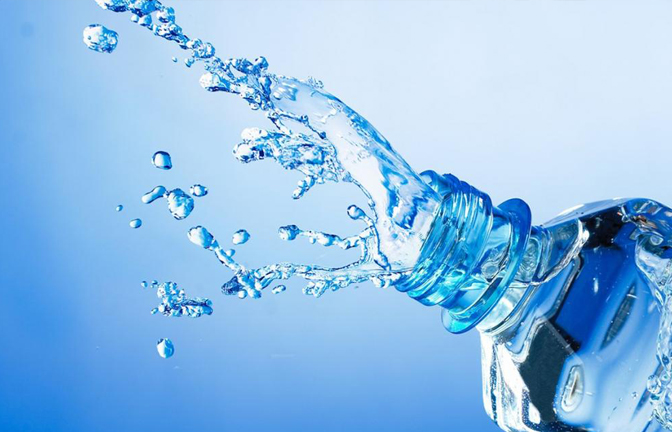Water is your body’s principal chemical component and constitutes about 60 percent of your body weight. Every system in your body depends on water. Lack of water can lead to dehydration, which prevents your body from carrying out normal functions. Even mild dehydration can drain your energy, create fatigue and even cause headaches and nausea.
Your ability to perform exercise can decline with a very small amount of dehydration. Losing just 2% of your body weight in fluid can decrease performance by up to 25%.
Adults produce an average of about 1 – 2 liters of urine per day, depending on their state of hydration, activity level, environmental factors, weight and the individual’s health. But we lose water in more ways than one.
In addition to urine, we are constantly losing water through sweat and even breathing. Since the body excretes water to maintain body temperature, we lose even more when we exercise.
Sweating is a primary means of thermoregulation, since the evaporation of sweat from the skin has a cooling effect. Hence, in hot weather, or when your muscles heat up due to exertion/exercise, more sweat is produced. All of that water must be replaced.
The volume of water lost in sweat daily is highly variable, ranging from 100 milliliters to 8 liters per day. Maximum sweat rates of an adult can be up to 2-4 liters per hour or 10-14 liters per day. However, during average intensity exercise, sweat loss can average up to 2 liters of water per hour.
So how much water do you need to consume to offset these losses?
The Institute of Medicine says adult men actually need about 13 cups (3 liters) of fluid per day, while adult women need about 9 cups (2.2 liters) of fluid (you get about an additional 2 1/2 cups of fluid from foods). The bigger you are, the more water you need. And if you exercise, you need even more water.
In the summertime, or if you live in a warm climate, you’ll also need to drink more water than the recommended amount. That’s because heat can make you sweat more and lose fluids faster.
Monitor your urine color will tell you how hydrated you are. Lighter urine color means you’re generally well-hydrated. If it’s darker, you are most likely dehydrated.
Older adults are more likely to become dehydrated because their sense of thirst declines. Pregnant women and nursing mothers need slightly more water. Additionally, some medications, such as antihistamines and certain antidepressants, increase your fluid needs too.
Alcohol, particularly at high doses, can cause you to excrete more than you consume. One drink, especially of beer, won’t do much (it’s about 92 percent water), but wine and hard liquor have more of a dehydrating effect because of their higher alcohol content.
It’s not only important to drink water during your workout, but also before your workout. You must pre-hydrate to prepare for exercise. The reality is that it’s important to drink water before, during and after your workout. If you start out dehydrated, you won’t have a good workout. You’ll feel lethargic and perhaps even dizzy. Your body simply won’t function well.
If you are well hydrated, you’ll feel stronger and will be able to work out longer and more effectively. That’s because the heart doesn’t have to work as hard to pump blood through the body.
So, how much water do you need before and during exercise? Follow this formula:
• One to two hours before your workout, drink 16 to 20 ounces of water
• 15 minutes before you begin, drink between 8 and 10 ounces of water
• During your workout, drink another 8 ounces every 15 minutes.
If you hydrate accordingly, you’ll get so much more from your exercise, and you’ll be safer too.






